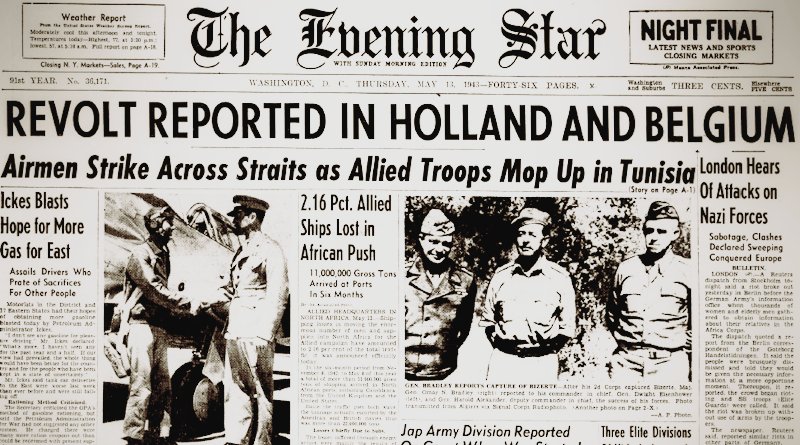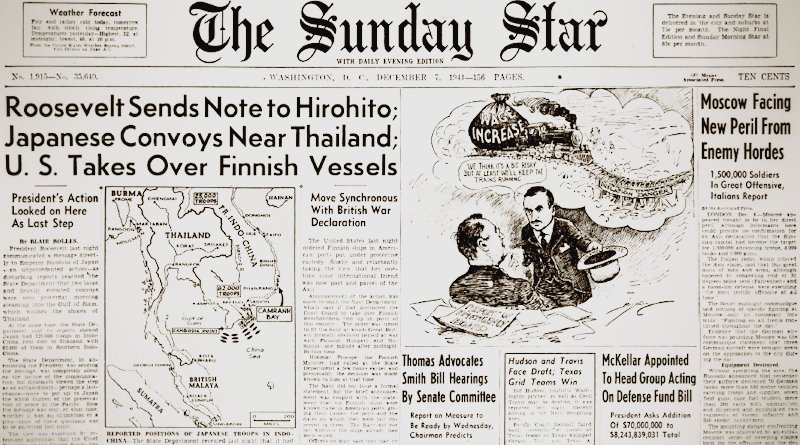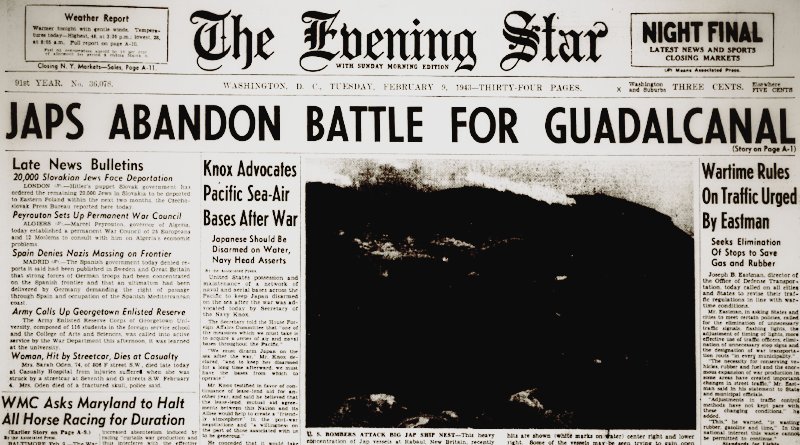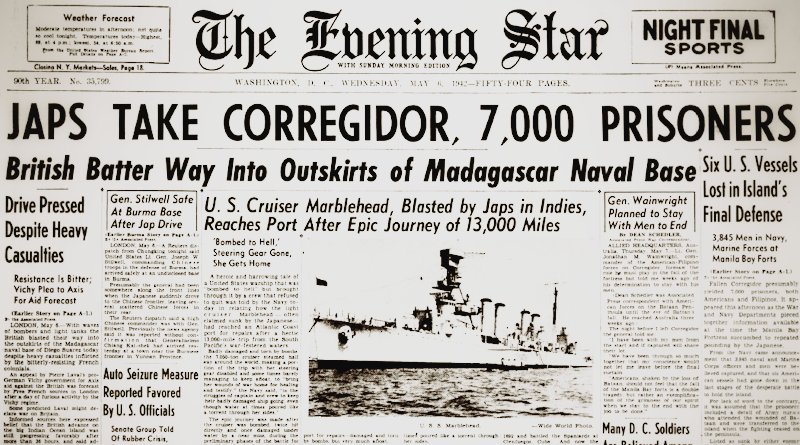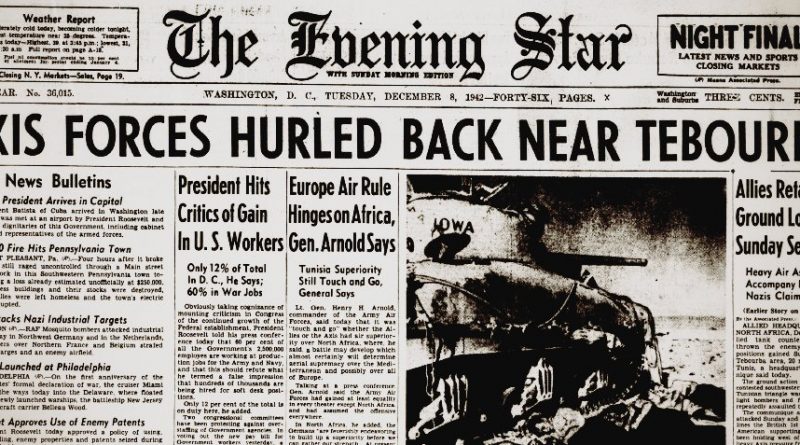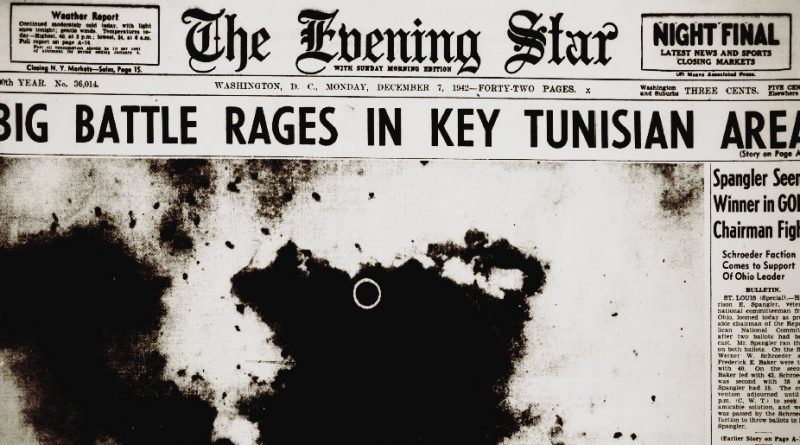World War II Chronicle: May 13, 1943
On page eight, the Army Air Force fitted two small engines to a glider and flew it. The aircraft appears to be a Waco CG-4, and was flown by Col. Frederick R. Dent, chief of the Dynamics and Glider branches in the Army Air Force’s Experimental Engineering Division.
We know Whiteman Air Force Base in Missouri is the home of the B-2 Spirit stealth bomber fleet. But when it was built in 1942, Whiteman was originally known as Sedalia Glider Base. 80 years ago at Sedalia, the Army Air Force was busy training glider pilots how best to carry out the dangerous job of crash-landing paratroopers behind enemy lines. In 1955 the Air Force renames the facility in honor of 2nd Lt. George A Whiteman, a P-40 pilot killed by Japanese gunfire while lifting off from Bellows Field during the surprise attack on Dec. 7, 1941.
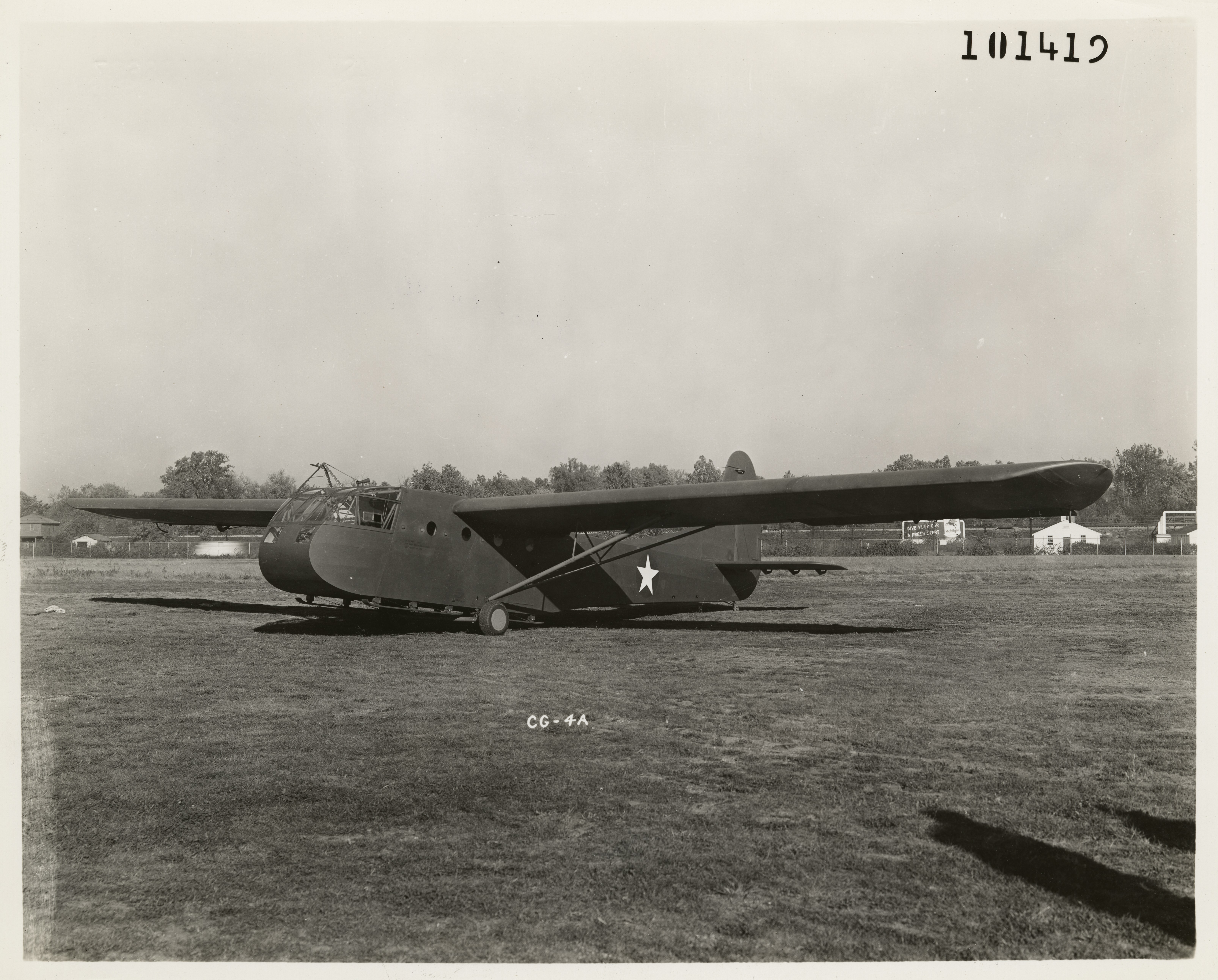
Page nine notes the passing of Maj. Gen. Stephen O. Fuqua, who began his military career commanding Company B, 2nd U.S. Volunteer Infantry during the Spanish-American War. He earned a regular army commission served as a staff officer for First Army during World War and served as Chief of Infantry after the war… On page 10: the Army is rotating senior combat commanders back to the States to impart their hard-won experience to unblooded recruits… George Fielding Eliot column on page 12… Sports section is on page 18
Page 32 tells the story of Indiana native, Capt. Donald K. Willis, the man who flew for the Brits and the Finns before joining the Army Air Force. Like many pilots who served in No. 121 (Eagle) Squadron the former Royal Air Force flight lieutenant flies Spitfires for the 335th Fighter Squadron. Next year Willis has an exciting escape after bailing out in Holland.
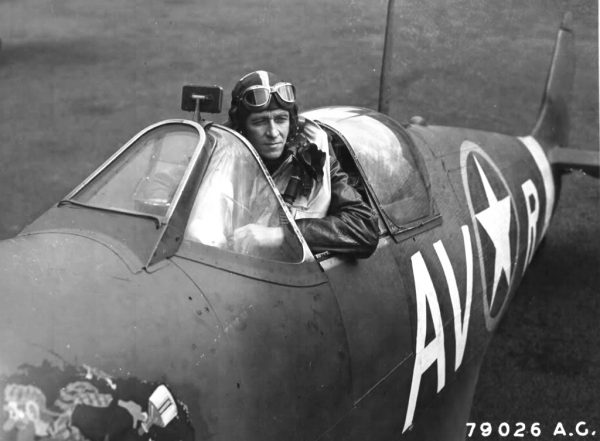
Roving Reporter by Ernie Pyle
TUNISIAN FRONT — The thing that Americans in Africa had fought and worked six months to get came today. When it did come, it was an avalanche almost impossible to describe. The flood of prisoners choked the roads. There were acres of captured material.
I’ll try to tell you what the spirit of the day was like.
It was a holiday, though everybody kept on working. Everybody felt suddenly free inside, as though personal worry had been lifted. It was like we used to feel as children on the farm, when parents surprised us by saying work was finished and we were going to the state fair for a day. And when you have looked, goggle-eyed, all day at more Germans than you ever expected to see in your life, you really feel like you have been to a fair.
Today you saw Germans walking alone along highways. You saw them riding, stacked up in our jeeps, with one lone American driver. you saw them by hundreds, crammed as in a subway on their own trucks, with their own drivers. And in the forward areas our Faigrounds of mile after mile contained more Germans than Americans. Germans were everywhere.
It made you a little light-headed to stand in the center of a crowd, the only American among scores of German soldiers, and not have to feel afraid of them. Their eighty-eights stood abandoned. In the fields dead Germans still lay on the grass. By the roadside scores of tanks and trucks still burned. Dumps flamed and German command posts lay littered where they had tried to wreck as much as possible before surrendering.
But all those were sideshows — the big show was the mass of men in strange uniform, lining roads, swamping farm yards, blackening fields, waiting for us to tell them where to go.
High German officers were obviously down in the mouth over the tragic end of their campaign. We saw some tears. Officers wept over the ghastly death toll taken of their men during the last few days. Officers were meticulously correct in their military behavior, but otherwise stand-offish and silent.
Not so the common soldier. I mingled with them all day and sensed no sadness among them. Theirs was not the delight of the Italians, but rather an acceptance of defeat in a war well-fought — why be surly about it?
They were friendly, very friendly. Being prisoners it obviously paid them to be friendly; yet their friendliness seemed genuine. Just as when the French and Americans first met the Germans started learning English words and teaching us German words.
But circumstances didn’t permit much communion between them and our troops. Those Americans who came in direct contact with them gave necessary orders and herded them into trucks. All other Americans just stared curiously as they passed. I saw very little fraternizing with prisoners.
I saw no acts of belligerence and heard neither boos nor cheers. But I did hear a hundred times: “This is the way it should be. Now we can go on from here.”
German boys were as curious about us as we were about them. Every time I stopped a crowd would form quickly. In almost every group was one who spoke English. In all honesty I can’t say their bearings or personality was a bit different from that of a similar bunch of American prisoners. They gave us their cigarettes and accepted ours, both for curiosity sake. They examined the jeep, and asked questions about our uniforms. If you passed one walking alone, usually he would smile and speak.
One high American officer told me he found himself feeling sorry for them — until he remembered how they had killed so many of his men with their sneaking mines, how they had him pinned down a few days ago with bullets flying; then he hated them.
I am always a sucker for the guy who loses, but somehow it never occurred to me today to feel sorry for those prisoners. They didn’t give you a feeling they needed any sorrowing over. They were loyal to their country and sorry they lost, but now it was over for them, they personally seemed glad to be out of it.
Tonight they still lounge by the thousands in fields along the roads. Our trucks and theirs too, are not sufficient to haul them away. They will just have to wait their turn to be taken off to prison camps. No guards are necessary to keep them from running off into the darkness tonight. They have already done their running and now they await our pleasure, rather humbly and with a curious eagerness to see what comes next for them.
Evening star. (Washington, D.C.), 13 May 1943. Chronicling America: Historic American Newspapers. Lib. of Congress.
https://chroniclingamerica.loc.gov/lccn/sn83045462/1941-05-13/ed-1/
